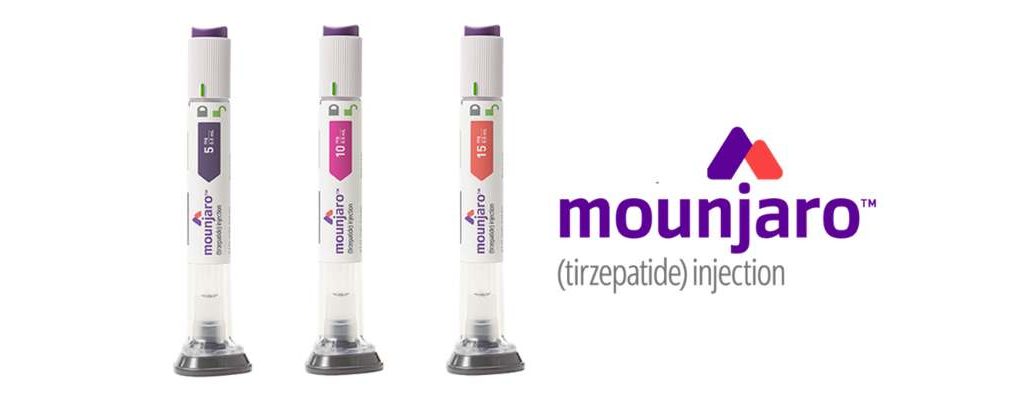Mounjaro, also known as tirzepatide, is a medication that was originally developed for the treatment of type 2 diabetes.
However, in recent years it has gained popularity for its effectiveness in weight loss. With obesity being a growing health concern worldwide, many individuals are seeking new and innovative treatments for weight management.
Mounjaro is one such option that has shown promising results.
In this article, we will explore what Mounjaro is, how Mounjaro works for treating type 2 diabetes and weight loss, and what kind of results you can expect from this drug.

What is Mounjaro?
Mounjaro is a GLP-1 and GIP agonist, which means it activates the receptors for these hormones in the body. This activation leads to an increase in the body’s production of insulin, which is important for regulating blood sugar levels. Additionally, Mounjaro improves insulin sensitivity, which means that the body can more effectively use the insulin it produces.
Mounjaro also slows down the body’s processing of food by delaying gastric emptying. This means that food stays in the stomach longer, which helps to promote feelings of fullness and reduce appetite. This effect on gastric emptying can also help to regulate blood sugar levels by slowing down the absorption of glucose from food.
What Do GLP-1 Agonists Do?
GLP-1 is a hormone that is released by the gut after a meal and helps to regulate blood sugar levels by stimulating insulin secretion, suppressing glucagon secretion, and slowing down gastric emptying.
By activating the receptors for GLP-1 in the body, a GLP-1 agonist medication can increase insulin secretion, which helps to lower blood sugar levels. It can also suppress glucagon secretion, which reduces the production of glucose by the liver. In addition, a GLP-1 agonist can slow down gastric emptying, which can help to reduce postprandial glucose spikes and promote feelings of fullness.
What Do GIP Agonists Do?
A GIP agonist, like a GLP-1 agonist, works by activating specific receptors in the body that are involved in regulating blood sugar levels. Both types of agonists increase the body’s ability to produce insulin, which is important for controlling blood sugar levels in individuals with type 2 diabetes.
However, there is a key difference between the two types of agonists. GIP agonists not only stimulate insulin secretion but also increase the body’s sensitivity to insulin. This means that the body can use the insulin it produces more effectively, which helps to improve blood sugar control.
Mounjaro is a medication that works as both a GLP-1 and GIP agonist. By activating these receptors, Mounjaro increases insulin secretion and improves insulin sensitivity, which helps to treat the root symptom of type 2 diabetes – insulin resistance.
This sets Mounjaro apart from other medications like Semaglutide and liraglutide, which are GLP-1 agonists but do not have the additional effect of improving insulin sensitivity through GIP activation.
The dual mechanism of action of Mounjaro makes it a promising option for individuals with type 2 diabetes who are looking for effective blood sugar control and improved insulin sensitivity.

How Does Mounjaro Cause Weight Loss?
Mounjaro works as both a GIP and GLP-1 agonist, which means it activates specific receptors in the body that are involved in regulating blood sugar levels and energy homeostasis. The medication has been found to be effective in promoting weight loss through several mechanisms.
Firstly, Mounjaro helps to reduce appetite by delaying gastric emptying. This means that food stays in the stomach longer, leading to feelings of fullness and reduced hunger, which can help individuals to consume fewer calories and achieve weight loss.
Secondly, Mounjaro increases energy expenditure by activating receptors that help to increase metabolic rate and energy expenditure. This means that the body burns more calories, contributing to weight loss over time.
Finally, Mounjaro increases insulin senstivity through the modulation of GIP recptors. This means that your body can more effectively use the glucose you consume. Helping you remain satiated and keep weight off.

How Much Weight Can You Lose With Mounjaro?
How much weight you can lose with Mounjaro depends on the individual, their lifestyle choices and prescribed dosage.
Looking at a clinical study published in the New England Journal of Medicine participants who took Mounjaro at a weekly dose of 5-mg to 15-mg experienced a significant reduction in body weight at 72 weeks compared to those who took a placebo. The highest reduction in body weight was seen in participants who took the 15-mg dose of tirzepatide.
Using the treatment-regimen estimand, the mean change in weight at week 72 was −15.0% with the 5-mg dose, −19.5% with the 10-mg dose, and −20.9% with the 15-mg dose, compared to −3.1% with placebo.
This research proves that Mounjaro is extremely effective in promoting weight loss, with some participants losing up to 20% of their body weight.
It should be noted that these results can be expedited with changes to diet and exercise.

How Quickly Does Mounjaro Work?
When taken as prescribed, Mounjaro works immediately to start lowering your blood sugar levels. However, it may take up to 12 weeks for Mounjaro to achieve a healthy A1C level.
It’s important to note that achieving a healthy A1C level can vary depending on the individual and their specific health condition.
In some cases, it may take longer than 12 weeks to achieve a healthy A1C level, and regular monitoring and adjustment of the medication may be necessary. It’s important to work closely with your healthcare provider to determine the best treatment plan for your individual needs.
For weight loss, Mounjaro can also be effective, but it may take a bit longer to see significant results. In clinical trials, patients typically saw significant weight loss results around the 28 week mark.
However, the amount of weight an individual can lose with Mounjaro may vary and should be discussed with a healthcare provider. It’s important to follow a healthy diet and exercise regimen while taking Mounjaro to optimize weight loss results.

What Foods Should I Avoid When Taking Mounjaro?
Although no foods are completely off-limits while taking Mounjaro, certain types of food can exacerbate some of its side effects or hinder your efforts to manage blood sugar levels and achieve weight loss. To optimize your treatment outcomes, you may want to consider avoiding or limiting the following foods:
- Fried and greasy foods: Consuming these foods can produce gastrointestinal symptoms that resemble some of Mounjaro’s side effects, such as bloating and abdominal discomfort. Additionally, they tend to be high in calories and unhealthy fats that can undermine your weight loss goals.
- Sugary foods: Foods with high sugar content can cause blood sugar spikes that counteract Mounjaro’s blood sugar-lowering effects. Moreover, they often contribute to weight gain, which can make it more challenging to attain your desired weight.
- Carbonated beverages: Drinking sodas or other carbonated beverages can lead to bloating and abdominal discomfort that can worsen some of Mounjaro’s side effects.
- Refined carbohydrates: Foods that contain refined carbohydrates, such as white bread, pasta, and processed snacks, can raise blood sugar levels and undermine your weight loss efforts.
- High-glycemic fruits: Some fruits are high in sugar and have a high glycemic index, which can cause blood sugar levels to spike. For example, watermelon and pineapple are considered high-glycemic fruits.
- Alcohol: Drinking alcohol while taking Mounjaro can increase the risk of hypoglycemia, especially for individuals with type 2 diabetes.
Mounjaro Vs Trulicity
Tirzepatide and Trulicity are both medications used for the treatment of type 2 diabetes. However, they differ in their mechanisms of action and dosing regimens.
Tirzepatide is a novel medication currently undergoing investigation and not yet available for commercial use. It combines the actions of glucose-dependent insulinotropic polypeptide (GIP) and glucagon-like peptide-1 receptor agonist (GLP-1RA). By stimulating insulin secretion, suppressing glucagon secretion, slowing gastric emptying, and promoting feelings of fullness, tirzepatide aims to effectively manage blood sugar levels.
Trulicity, on the other hand, is an established medication whose generic name is dulaglutide. It is a GLP-1RA that mimics the effects of GLP-1. By stimulating insulin release, reducing glucagon secretion, slowing gastric emptying, and increasing satiety, Trulicity assists in controlling blood sugar levels in patients with type 2 diabetes.
While both medications have shown efficacy in clinical trials, tirzepatide has demonstrated promising results, suggesting that it may be more effective than existing therapies in reducing HbA1c levels and promoting weight loss.

